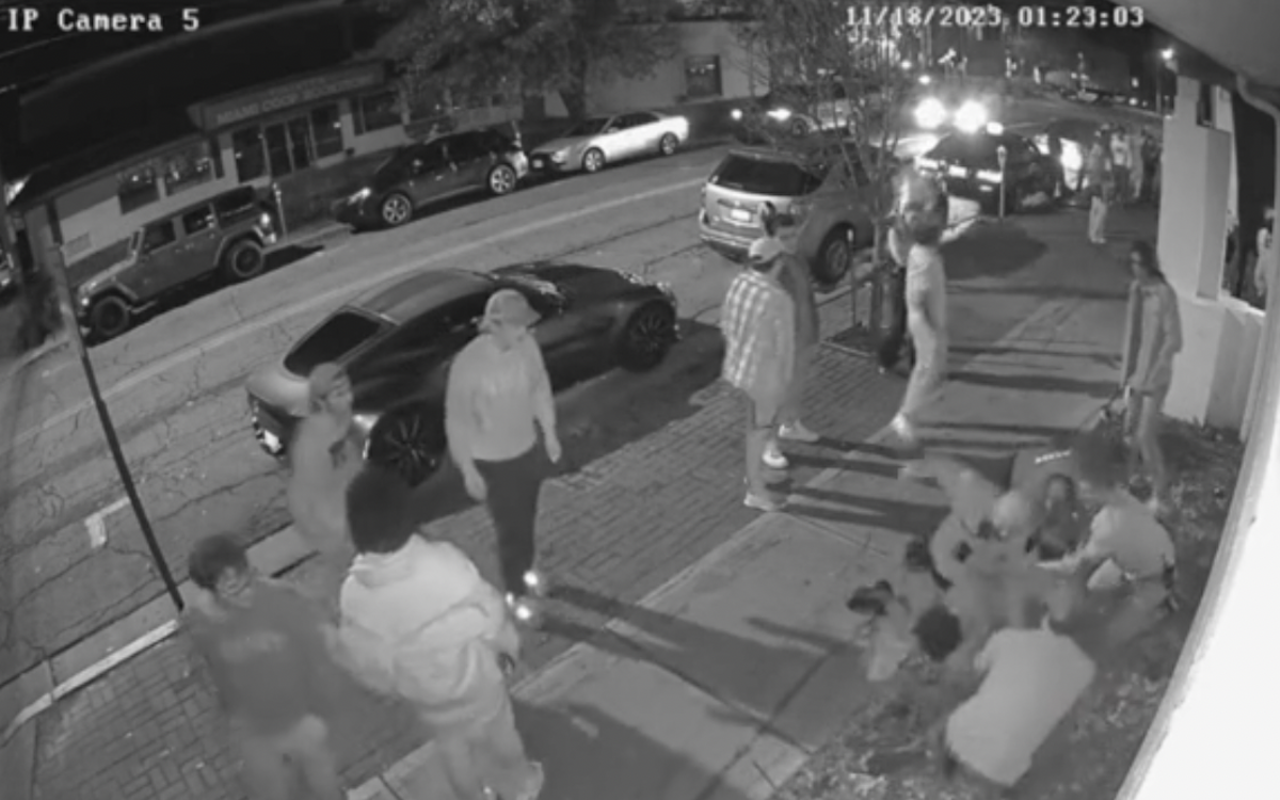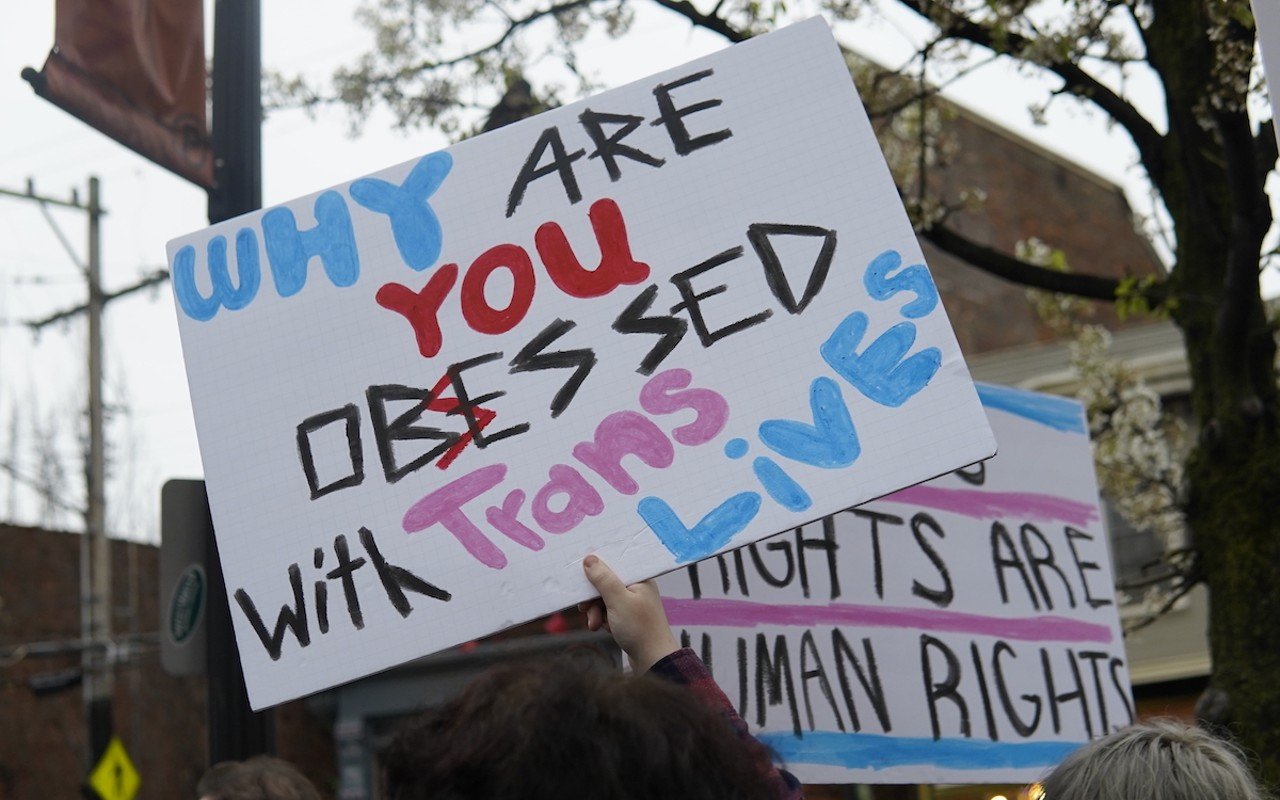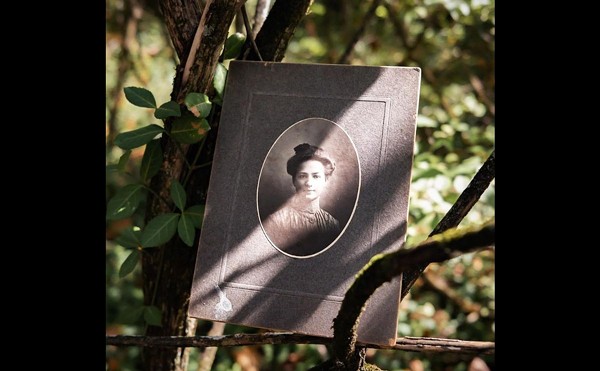Professors at Central State University worry what could happen at Ohio’s only public historically Black university if a controversial higher education overhaul bill becomes law.
Senate Bill 83 would have a dramatic effect on Ohio colleges and universities. State Sen. Jerry Cirino’s bill would limit what “controversial topics” can be taught, prohibit mandatory diversity, equity and inclusion training unless certain parameters are in place, put a retrenchment policy in effect that would prevent unions from negotiating on tenure and would create student evaluations that determine if a faculty member promotes an atmosphere “free of political, racial, gender and religious bias.”
“Students come to our university, mostly Black students, for a specific cultural experience that is important to them and empowering for them,” said Brendan Shaw, president of the university’s American Association of University Professors chapter. “Not talking about race or being concerned about talking about race has a chilling effect on what we can talk about, and how we can empower our students.”
“The basic premise of academic freedom is that we are the experts in our fields,” said Anthony Arment, a biology professor at Central State. “And we need to be given the freedom to explore and research and speak on our subjects and disciplines as experts and professionals. This directly jeopardizes that.”
A little more than 5,400 students attended Central State in Fall 2022 — 33% were Black, 26% were white and 12% were Hispanic, according to the university’s Fact Book.
Wilberforce University is Ohio’s other HBCU, but it is a private university. SB 83 currently only applies to Ohio’s public colleges and universities.
Central State assistant professor Genevieve Ritchie-Ewing is unsure how she would teach her sociology and anthropology courses if SB 83 becomes law.
“It is so vague, and much of what I teach would probably fall under what they call those controversial concepts,” she said.
The bill defines controversial topics as “any belief or policy that is the subject of political controversy, including issues such as climate policies, electoral politics, foreign policy, diversity, equity, and inclusion programs, immigration policy, marriage, or abortion.”
“If people don’t have an agreed upon idea of what controversial concepts are, you could potentially get in trouble for teaching anything because if one person thinks it’s controversial, and they complain to somebody, and that goes up the chain,” she said. “That makes me unsure about being able to teach any of the things that I teach.”
Banning mandatory diversity, equity and inclusion training would also deeply impact the university.
“We are given the gift of helping folks from a minority population, and graduating folks into fields that need diversity in them,” Shaw said. “If we can’t have those conversations among the faculty, we can’t help our students have those conversations.”
A recent addition to SB 83, which is in its 11th version, was a retrenchment policy that would prevent unions from negotiating on tenure. It would also allow universities to fire tenured professors for a broad list of reasons including reduction in student population. Faculty with between 30-35 years of tenure would be protected.
“It basically allows the university to declare fiscal or other emergency and then regardless of safeguards, like tenure, to start gutting its faculty,” Arment said. “For most of us, we’re the only members of our discipline. So cutting any one of us out, hamstrings an entire program and an entire college.”
Central State has managed to keep retrenchment out of their contract, he said.
Wright State University went through a retrenchment process in 2021 after seeing ongoing decline in enrollment and reduced its faculty by up to 113 positions, according to the Dayton Daily News.
SB 83 would also require professors to post their syllabus online, something Arment said calls “additional burdens.”
“Giving us more work to do only negatively impacts the time we could spend developing and teaching courses,” he said.
Ritchie-Ewing said she already hears students say they don’t think society cares about them or thinks they are important.
“Putting something like this into effect proves to them that this is exactly what they think — that the U.S. society as a whole or Ohio as a state just doesn’t really care to hear from them, doesn’t care what they think, doesn’t think that they’re important, and doesn’t really want to see them succeed,” she said.
This story was originally published by the Ohio Capital Journal and republished here with permission.
Follow us: Apple News | Google News | NewsBreak | Reddit | Instagram | Facebook | Twitter | Or sign up for our RSS Feed








